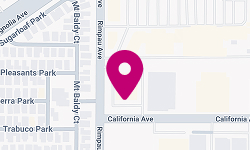- Free Consultation: (888) 883-6588 Tap Here To Call Us
Fighting Wage Theft in California

As an experienced Orange County employment law attorney, I understand the pervasive issue of wage theft in California. Many people work tirelessly only to be underpaid or not paid at all, which violates federal and state laws. This unfair treatment not only undermines workers’ livelihoods but also erodes trust in the employer-employee relationship. I am here to help clients fight for their rights and recover the earnings they are rightfully owed.
What Is Wage Theft?
Wage theft occurs when an employer fails to pay an employee in compliance with the law. It includes unpaid overtime, minimum wage violations, meal and rest break violations, unreimbursed work expenses, and withheld final paychecks.
Both federal law (such as the Fair Labor Standards Act) and California law provide protections against wage theft. California, with the Labor Code and Industrial Welfare Commission Wage Orders, offers some of the strongest worker protections in the nation.
Forms of Wage Theft
Wage theft can take many forms, and unfortunately, it’s a widespread issue affecting countless hardworking individuals in California. Employers may use deceptive tactics or simply ignore the law to withhold earnings that employees are rightfully entitled to. Wage theft occurs in many industries and affects workers across all levels, from hourly employees to salaried professionals. As a California wage theft plaintiff attorney, I’ve seen firsthand how these illegal practices can have a devastating impact on employees who depend on their wages to support themselves and their families. Here are some of the most common types of wage theft that I encounter in my practice:
Unpaid Overtime
Non-exempt employees in California must be paid overtime if they work over 8 hours in a day or 40 hours in a week (California Labor Code Section 510). Overtime pay is 1.5 times the regular rate, and double pay is required for over 12 hours in a day or more than 8 hours on the seventh consecutive workday. Many employers don’t pay the appropriate overtime or misclassify workers as exempt to avoid paying it. This is illegal, and I can help clients recover unpaid wages.
Minimum Wage Violations
California’s minimum wage is $16 per hour for 2024, rising to $16.50 in 2025. Some cities even have higher minimum wage requirements, and some workers, like fast food employees, might even have a higher minimum wage. Employers who pay less than the minimum are violating California Labor Code Section 1197. If you’re not being paid the legal minimum, this is wage theft.
Meal and Rest Break Violations
Most employees are entitled to a 30-minute meal break every 5 hours and a 10-minute rest break every 4 hours (Labor Code Section 226.7). Many employers fail to provide these breaks or deduct them from pay improperly. If a client has been denied breaks, I may be able to help recover additional pay.
Misclassification as an Independent Contractor
Misclassifying workers as independent contractors to avoid paying benefits and overtime is illegal under California’s “ABC test” (Labor Code Section 2775). If you’ve been misclassified, you may be entitled to back wages and other protections.
Unpaid Final Paychecks
Under Labor Code Sections 201 and 202, employees are entitled to immediate or timely final pay upon termination or resignation. If a client’s employer delayed or partially paid final wages, I may be able to help recover unpaid and delayed compensation and pursue waiting time penalties.
How I Can Help You Fight Wage Theft
I am here to help you recover what you’re owed. Here’s how I assist clients:
- Filing a Claim with the California Labor Commissioner – I can file a wage claim with the Labor Commissioner’s Office, guiding clients through the process to ensureclaims are supported by law and facts, maximizing clients’ recovery.
- Filing a Lawsuit – In some cases, a lawsuit is necessary to collect what’s owed. I can file the appropriate lawsuit to seek back pay, interest, and penalties.
- Recovery of Penalties and Interest – California law allows for penalties in addition to unpaid wages. For example, under Labor Code Section 203, employees can receive “waiting time penalties” for each day of delayed payment, up to 30 days. I will ensure all appropriate penalties are included in our client’s claims.
- Representation in Court or Settlement Negotiations – I will represent clients in court or settlement negotiations to attempt to recover the full amount owed, plus any penalties and interest.
Statute of Limitations for Wage Claims in California
Take action promptly if you suspect wage theft. Generally, you have up to three years to claim unpaid wages and overtime or up to four years if you have a written contract. The statute of limitations for minimum wage violations is three years, but it can extend to four. For missed meals or rest breaks, you have up to three years, but some claims have a one year statute of limitations, e.g. PAGA claims. Consult with our firm to understand your filing window.
Frequently Asked Questions About Wage Theft in California
What Is the Most Common Form of Wage Theft?
The most common type is unpaid overtime. Many employers fail to pay correct overtime under Labor Code Section 510 when employees work more than 8 hours a day or 40 hours a week.
What Do I Do If My Employer Doesn’t Pay Me Overtime?
You may be able to file a wage claim with the California Labor Commissioner’s Office or file a lawsuit to recover unpaid wages, interest, and penalties. Consulting with an attorney will help ensure a complete recovery is considered.
How Much Time Do I Have to File a Wage Claim in California?
You generally have three years to file a claim for unpaid wages, overtime, or rest breaks. The statute of limitations can vary, so consult an attorney to ensure you file within the allowed time.
Can I Recover Penalties If My Employer Fails to Pay My Final Paycheck in a Timely Manner?
Yes. Under Labor Code Section 203, you may be entitled to waiting time penalties if your employer willfully delays your final paycheck, up to 30 days’ wages.
Call Our Orange County Unpaid Wages Attorney For Your Free Consultation
Wage theft is widespread but shouldn’t go unanswered. You have rights under California law, and I am here to ensure clients are given options to receive every penny owed to them.
At Law Office of Joseph Richards, P.C., we are deeply committed to standing up for workers who have been victims of wage theft. Contact our firm today to receive your free consultation to discuss how we may be able to help you obtain your due wages and hold your employer accountable. You are not alone in this fight.
If you have been the victim of wage theft, do not wait to act. At Law Office of Joseph Richards, P.C., I am deeply committed to assisting employees in fighting back against employers who steal their wages. Whether it is unpaid overtime, missed breaks, or misclassification, I am here to stand up for you and ensure that justice is served. Contact our Orange County unpaid wages attorney at Law Office of Joseph Richards, P.C. today by calling (888) 883-6588 to schedule a consultation.
























